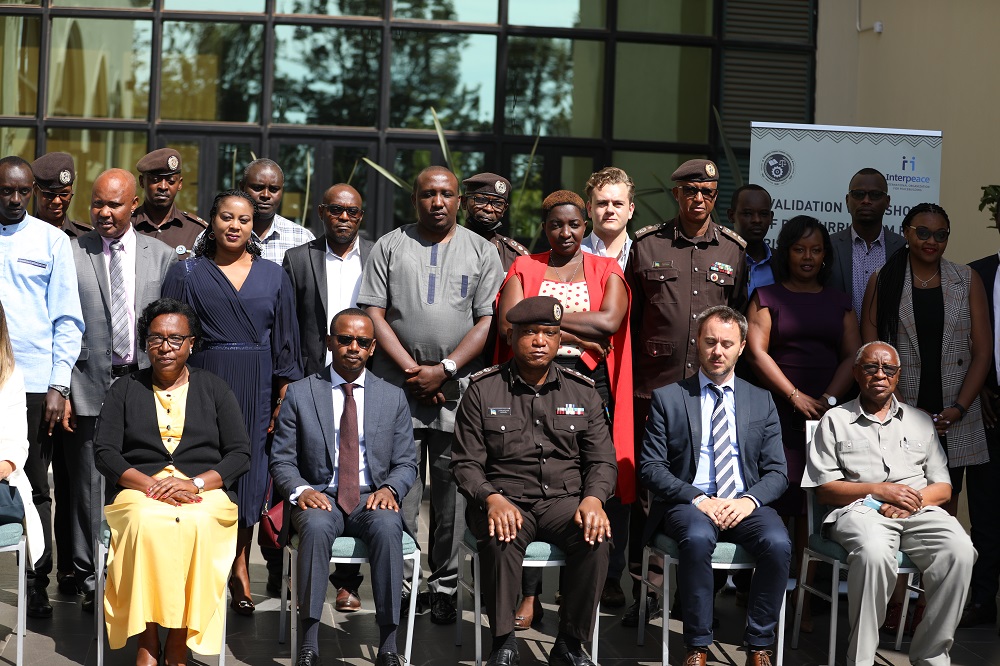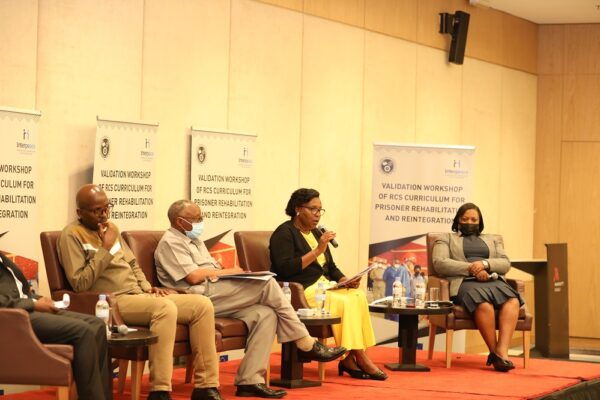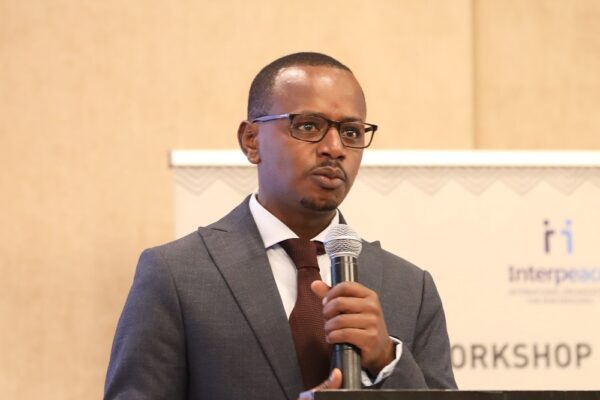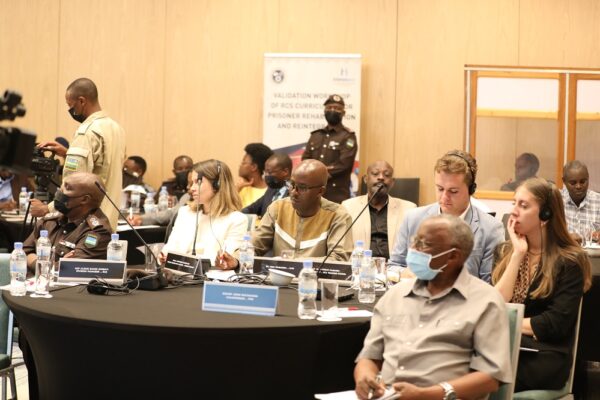Rehabilitation and reintegration of prisoners in Rwanda as part of trauma healing

Rehabilitating and reintegrating prisoners remains a struggle in many countries and communities around the world, including Rwanda. In recent years, many Rwandan prisoners, especially those convicted of crimes related to the 1994 genocide against the Tutsi, have finished their terms and returned to their communities. Most individuals convicted of the most heinous genocide-related crimes and sentenced to between 20 and 30 years in jail are expected to be released within the next four to five years. According to Rwanda Correctional Service (RCS) statistics, this number exceeds 20,000 people.
RCS has made remarkable efforts over the past several decades to improve the well-being of convicts, including the implementation of numerous rehabilitation and reintegration programmes. However, serious issues persisted. For instance, there was a lack of a national curriculum, particularly regarding the psychosocial preparation of soon-to-be-released inmates, as well as a strong coordination structure between the many actors involved in the rehabilitation process.
On July 20, 2022, RCS and Interpeace launched a comprehensive curriculum which is a 6-month certificate programme divided into eight key modules and each module focuses on the different themes. Those modules include interpersonal skills and conflict management; physical and mental wellness; career development and entrepreneurship; drug and substances abuse education; human rights and legal awareness; family dynamics; civic education and genocide ideology, and safe return and connection with family and society. It will be implemented in all 13 prisons across the country by RCS staff members in collaboration with RCS stakeholders. The curriculum was developed with technical assistance from Interpeace as part of the European Union-funded programme "Reinforcing community capacity for social cohesion and reconciliation through Societal Trauma Healing in Bugesera District." It will serve as guiding tool to correctional officers and partners to ensure effective psychosocial rehabilitation and reintegration of inmates into their families and communities.

Studies have indicated that without an appropriate psychosocial rehabilitation and reintegration programme, released convicts may continue to experience feelings of humiliation, worthlessness, guilt, sadness, and a skewed self-image, all of which may impact their social lives in the community. In most cases, ex-prisoners face rejection by their families and communities, especially by community members who are not ready to receive them due to their crimes. The dismissal and lack of community support drive some to relocate to other places where they are not known. This may exacerbate social tensions by triggering fear and anxiety, particularly among genocide survivors.
According to the baseline research conducted prior to the development of this curriculum, the existing programmes are predominantly informal and not uniformly implemented in all prisons. They are provided by a range of non-governmental organisations (NGOs) and some governmental institutions rather than by RCS employed staff. The new curriculum consolidates and harmonizes existing initiatives and programmes and incorporates elements of relevant good practices identified from other contexts.
Frank Kayitare, the Country Representative of Interpeace in Rwanda, indicated that the research revealed the urgency of having a harmonized approach to prisoner rehabilitation and reintegration as part of trauma healing in the country.
"Re-integrating ex-prisoners for genocide-related crimes ranked among the highest challenges identified by families and communities in the survey. Difficulties for ex-prisoners and their immediate families to sufficiently reconnect, worsening anxiety among genocide survivors in the communities where these ex-genocide perpetrators are reintegrated; and the challenge of ex-prisoners adapting to a fundamentally changed society in many respects, including gender norms and family dynamics, are among the main issues that this curriculum is intended to help contribute to solve," said Kayitare.

The new curriculum combines and harmonizes existing initiatives and programmes with elements of relevant good practices identified in other contexts. It has also considered the psychological aspect of prisoner rehabilitation, which was lacking in existing initiatives. As a result, it will not only equip inmates with socio-emotional skills such as self-management and dealing with trauma stemming from a long life in prison, but also develop vocational and livelihood skills to make an independent living in the community after release.
During the curriculum’s validation, the Commissioner General of RCS, ACP Alex Bahizi Kimenyi, recognized the added value of the curriculum as it offers a well-structured and holistic approach to tackling challenges his institution has been facing on this matter. He called upon all actors to lend their hand in ensuring effective and efficient curriculum implementation.
"This curriculum will enable us to work in a well-harmonized and coordinated manner, which will improve the quality of our work. However, adopting this curriculum is not the end of the journey; it is rather the beginning. I call upon all our partners, including donors, government institutions, and communities, to support this initiative so its implementation can be fully effective."

Thibaut Moyer, Head of Cooperation at the Delegation of the EU to Rwanda, appreciates the partnership with Interpeace that has led to the development of this curriculum. He reiterates the EU’s commitment to support its effective implementation.
"With the anticipated tens of thousands of prisoners to be released in the upcoming years, the EU has set aside 7 million Euros that will be used to work with local organizations, the government and other stakeholders to ensure a peaceful transition back into the communities for these prisoners and continue to foster peace in Rwanda."
The curriculum will contribute content to the "Halfway Home" initiative, where prisoners about to be released will be transited. From there, they will be offered opportunities to meet their respective communities and have an open discussion with family and community members. The move aims to facilitate the reestablishment of relationships, acceptance, tolerance, and trust between prisoners and community members and foster social cohesion.
